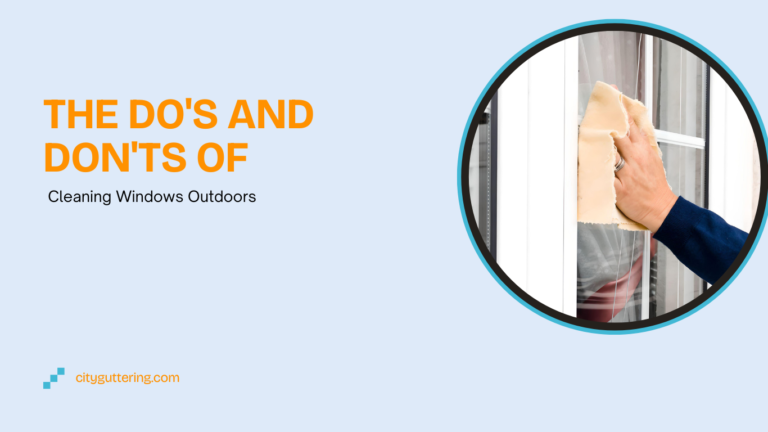A well-maintained driveway not only adds to the aesthetic appeal of your home but also plays a crucial role in protecting your investment. Over time, driveways face wear and tear from weather conditions, vehicle traffic, and natural aging.
Sealing is one of the most effective ways to protect and extend the life of your driveway. But how often should you apply sealant? The answer depends on several factors, including the type of material, climate, and usage.
How Often Should You Seal Your Driveway?
In this guide, we’ll explore the importance of driveway sealing, factors influencing its frequency, and expert recommendations for different driveway materials.
Why Sealing Your Driveway Matters
Many homeowners overlook the importance of sealing their driveways, assuming it’s just an optional maintenance task. However, regular sealing provides several benefits:
- Protects against water damage caused by rain, snow, and moisture, which can lead to cracks and potholes over time.
- Reduces cracking and erosion by minimizing the expansion and contraction of the driveway due to temperature changes.
- Prevents oil and chemical stains from vehicle leaks, making it easier to clean.
- Extends the lifespan of the driveway, reducing the need for costly repairs or full replacements.
- Improves the overall appearance of the driveway, keeping it looking clean and well-maintained.
How Often Should You Seal a Driveway?
There is no one-size-fits-all answer, as the frequency of sealing depends on multiple factors.
Key Factors That Determine Sealing Frequency
- Driveway Material – Asphalt, concrete, and block paving require different maintenance schedules.
- Climate & Weather Conditions – Areas with heavy rainfall and fluctuating temperatures require more frequent sealing.
- Usage & Traffic Levels – Driveways that handle multiple vehicles or heavy loads wear out faster.
- Quality of Previous Sealing – The type and quality of the last sealant used impact how long it lasts.

Recommended Sealing Frequency by Driveway Type
Asphalt Driveways
Asphalt is one of the most commonly used materials for driveways due to its affordability and flexibility. However, it is also prone to cracks and deterioration if not properly maintained.
- Recommended sealing frequency: Every 2-3 years
- Signs it needs sealing:
- Fading color
- Hairline cracks appearing
- Water no longer beads on the surface
- Surface looks rough and worn
Concrete Driveways
Unlike asphalt, concrete is more durable but still benefits from periodic sealing to prevent moisture absorption and surface stains.
- Recommended sealing frequency: Every 3-5 years
- Signs it needs sealing:
- Water stains or discoloration
- Small cracks forming
- Surface looks dull or powdery
Block Paving Driveways
Block paving is often chosen for its decorative appeal and durability. However, gaps between the pavers can allow weeds to grow and dirt to accumulate.
- Recommended sealing frequency: Every 2-4 years
- Signs it needs sealing:
- Weeds growing between pavers
- Pavers becoming loose or shifting
- Water soaking into the surface instead of running off
Gravel Driveways
Gravel driveways do not require traditional sealing, but they do need maintenance to keep them in good condition.
- Recommended maintenance:
- Raking and adding fresh gravel as needed
- Installing a stabilizing grid to prevent displacement
- Keeping drainage clear to avoid water pooling

Signs That Your Driveway Needs Sealing
Even if your driveway hasn’t reached the recommended sealing period, certain signs indicate it’s time for maintenance. Look out for:
- Cracks and surface damage that can worsen over time if left untreated.
- Faded or dull appearance, which suggests that the sealant has worn off.
- Water absorption rather than water beading on the surface.
- Oil or chemical stains that have penetrated the surface.
Best Time to Seal Your Driveway
The timing of sealing is just as important as the frequency. For best results:
- Choose dry weather and avoid sealing when rain is expected within 24-48 hours.
- Ideal temperature range for sealing is between 10°C and 25°C (50°F to 77°F) to allow proper curing.
- Spring and summer are the best seasons for sealing, as warmer months provide optimal conditions for the sealant to dry properly.
DIY vs. Professional Driveway Sealing
Some homeowners prefer a do-it-yourself approach to save money, while others hire professionals for a more durable and even application.
DIY Driveway Sealing
Pros:
- Lower upfront cost
- Can be done on your schedule
- Readily available sealant products
Cons:
- Labor-intensive and time-consuming
- Risk of uneven application
- Shorter lifespan compared to professional sealing
Professional Driveway Sealing
Pros:
- High-quality sealant lasts longer
- Even and professional-grade application
- Faster drying and curing times
Cons:
- Higher cost compared to DIY
- Scheduling with a contractor required

Additional Driveway Maintenance Tips
Sealing is just one part of driveway maintenance. Here are some extra steps to keep your driveway in top condition:
- Sweep regularly to remove leaves, dirt, and debris that can accumulate over time.
- Clean oil stains quickly using a degreaser or dish soap to prevent permanent marks.
- Repair small cracks immediately to stop them from expanding and causing structural damage.
- Ensure proper drainage by keeping gutters and surrounding areas clear to prevent water pooling on the driveway.
Conclusion
Sealing your driveway is a simple yet effective way to extend its lifespan and maintain its appearance. While different materials require different sealing schedules, keeping an eye on signs of wear can help you determine the best time for maintenance.
Whether you choose to seal it yourself or hire a professional, regular care will keep your driveway looking great for years to come. For those in London and Surrey, maintaining your driveway is especially important due to frequent rain and temperature changes.
If your driveway is showing signs of wear, now is the time to consider a fresh coat of sealant. Proper maintenance today will save you from expensive repairs in the future.





